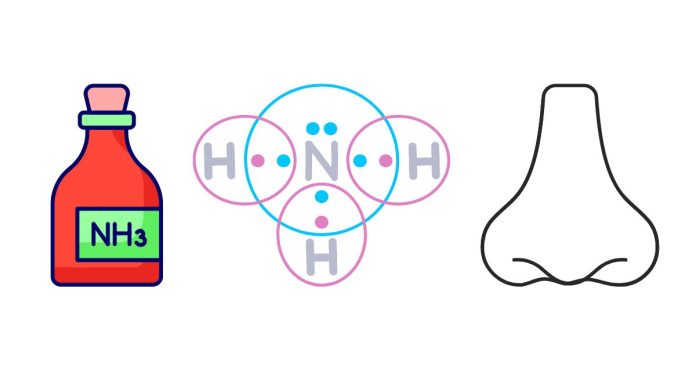Ammonia is one of the most recognizable and pungent chemicals found in both nature and household products. If you’ve ever accidentally inhaled ammonia, you probably remember the experience clearly, but have you ever wondered what ammonia actually smells like? The smell of ammonia can be overwhelming and unpleasant to many people, but understanding its distinct scent and why it’s so potent can help in situations where you might encounter it. In this blog post, we’ll explore what ammonia smells like, what causes that distinctive odor, and how to handle it safely.
What is Ammonia?
Ammonia, scientifically known as NH₃, is a colorless gas made up of nitrogen and hydrogen atoms. It is naturally found in the environment, created by the decomposition of organic materials, such as animal waste, and in the nitrogen cycle. Ammonia is also used in many industrial and household cleaning products due to its effectiveness in breaking down grease and dirt.
When ammonia is dissolved in water, it forms an ammonia solution, which is commonly found in household cleaners. In its concentrated form, ammonia can be hazardous to your health, which is why it is important to know what it smells like and how to recognize it.
What Does Ammonia Smell Like?
Ammonia has a very distinctive, strong, and sharp odor. Many people describe it as having a pungent, acrid smell that is often likened to the scent of urine or cat litter. This is because ammonia is a key component in the waste produced by animals, especially mammals. If you’ve ever cleaned out a litter box or been around animal urine, you’ve likely smelled ammonia.
Here are some common descriptions of the smell of ammonia:
- Sharp and pungent: Ammonia has an intensely sharp scent that can feel like it hits your nose and throat quickly.
- Slightly metallic: Some people detect a faint metallic note, similar to the scent of blood or certain cleaning products.
- Cleaning product-like: Many commercial cleaners contain ammonia, so its scent is also often associated with disinfecting or scrubbing surfaces.
Why Does Ammonia Smell So Strong?
The reason ammonia has such a strong, eye-watering scent is due to its high volatility. Ammonia molecules easily evaporate into the air, which allows them to travel quickly and reach your nose, triggering a strong reaction. The nose is particularly sensitive to ammonia, and the body’s natural response to its odor can be one of discomfort or irritation.
In higher concentrations, ammonia can cause burning sensations in the nose, throat, and eyes. Prolonged exposure or inhalation of ammonia vapors can even be dangerous, leading to respiratory issues, coughing, and damage to lung tissue.
How to Handle Ammonia Safely
Because ammonia can be harmful in concentrated amounts, it’s essential to handle it with caution:
- Ventilate the Area: When using ammonia-based cleaning products, always ensure the area is well-ventilated. Open windows or use fans to disperse the fumes.
- Wear Protective Gear: If you are handling concentrated ammonia, it’s a good idea to wear gloves, goggles, and a mask to prevent skin or eye irritation and limit inhalation.
- Dilute It Properly: When using ammonia as a cleaning agent, be sure to follow instructions and dilute it with water as recommended. Never mix ammonia with bleach, as this can create toxic gases.
- Use in Small Amounts: Since ammonia has such a potent odor, using it in smaller quantities can help you avoid overwhelming yourself with its smell.
Ammonia is a powerful, pungent substance with a sharp, acrid smell that is often compared to the scent of urine or cleaning products. The strong odor is caused by ammonia’s high volatility, which makes it easily detectable in the air. While ammonia is useful for cleaning and industrial purposes, it’s important to handle it safely to avoid respiratory issues and irritation. Always ensure proper ventilation, use protective gear when needed, and never mix ammonia with bleach.
Have you ever had an unpleasant encounter with ammonia? What’s your experience with its smell? Let us know your thoughts and tips in the comments below!


